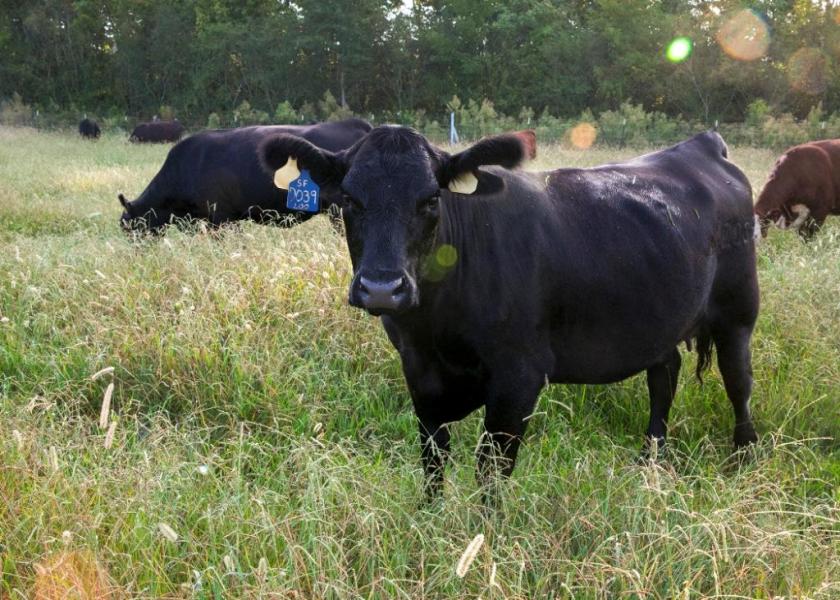Georgia Farm’s Beef Reduces Atmospheric Carbon

White Oaks Farms, a southwest Georgia operation known for its pasture-raised meats, says a third-party sustainability science firm has validated its claims that the farm is storing more carbon in its soil than pasture-raised cows emit during their lifetimes.
The results indicated that White Oak Pastures offsets at least 100% of the 3,200-acre farm's grass-fed beef carbon emissions and as much as 85% of the farm’s total carbon emissions.
Scientists at Quantis, an environmental research and design firm, conducted a Life Cycle Assessment (LCA) on beef raised by White Oak Pastures to "account for the energy and environmental impacts of all stages of a product's life cycle, such as [the] acquisition of raw materials, the production process, handling of waste byproducts, and more." Using both soil sampling and modeled data from 2017, the LCA analyzed the farm's overall greenhouse gas footprint.
The study included enteric emissions (belches and gas) from cattle, manure emissions, farm activities, slaughter and transport, and carbon sequestration through soil and plant matter. The scientists said, "based on historical sampling, White Oak Pastures' holistically managed fields went from 1 percent soil organic matter to 5 percent.”
White Oak Pastures is a multi-generational 3,200-acre farm that owner Will Harris is committed to returning to its ancestral roots in regenerative farming. He transitioned his conventional farm operations in 1995 to a grassfed, pastured program. Today, White Oak Pastures is the largest Certified Organic farm in Georgia, raising 10 species of livestock: cattle, goats, sheep, hogs, rabbits, chickens, turkeys, ducks, geese and guinea fowl.
As part of the farm's zero-waste philosophy, White Oak Pastures also produces skincare products, soap, and candles from beef tallow, along with pet chews and leather items from cow hides.
Related stories:







